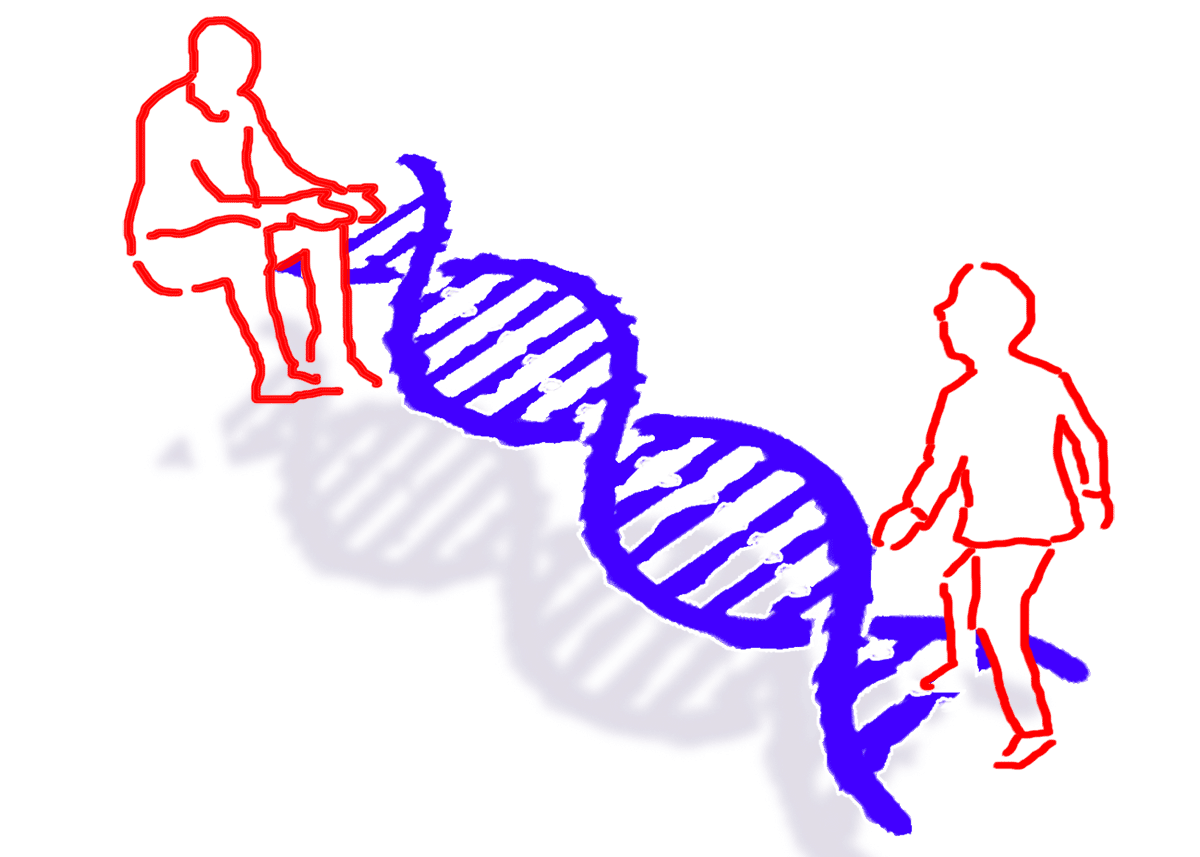Just as the atom and the byte needed careful societal control to prevent damage to society, perhaps, so does the gene, particularly in debates like 'genes vs merit', explains Ajit Balakrishnan.

"Let's go with this candidate," said a person on our three-member committee tasked to select an Indian Institute of Management director from among the five short-listed candidates.
"Why, what is it about his resume that made you recommend him," I asked.
"I know his father and brother ... they are a talented, hardworking family," said the person.
I was uneasy. So, I asked, "Why? Does talent run in families?"
"It always does, hasn't it been proven by modern science that intelligence and other traits are passed through genes? If you don't believe me, please read the book The Bell Curve," he said.
I was dumbfounded. I knew 50 years ago everything was accomplished in India (and perhaps the world) through "family connections", and skill and talent were assumed to pass on from father/mother to son/daughter.
But hadn't we moved on to assess merit by other means? For example, how relevant is his resume/prior work experience...
What is true is that while all of us have been busy coming to terms with the Internet and its related dazzling breakthroughs like artificial intelligence, which we must celebrate as well as be worried about, there has been another and perhaps an even more dazzling technological wave slowly making its way into our lives and that goes by the initials DNA.
DNA is what chemists call a 'molecule' and its full name is deoxyribonucleic acid.
Unlike other convoluted chemical names, from which we can safely look the other way, scientists are making claims about DNA that are frightening and difficult to ignore.
They say, for example, "'DNA is unique to each individual and is passed from parent to child'.
If it was just chemical things which were different for each species of animals, birds, or even human types, we would again look the other way, yawn, and let our scientist friends babble away and entertain each other and their conference attendees.
But right now bigger claims are being made.
The start of this rancorous debate in this area was the book The Bell Curve: Intelligence and Class Structure in American Life, by Richard J Herrnstein and Charles Murray (published in 1994).
This book made a startling assertion that the intelligence of a person, as measured in IQ tests, is determined largely by the genes that the person inherits from her/his parents.
It also made the even more startling assertion that the average IQ score differs across various racial and ethnic groups because of their inherited genes, and (even more controversially) that intelligence, measured by IQ, significantly influences socioeconomic outcomes in American society.
The book controversially discusses racial differences in IQ and suggests that society is increasingly stratified by cognitive ability, leading to a 'cognitive elite'.
While this book caused a lot of controversy, many of us worry that current research in the DNA area may be steered in this awful direction: To 'explain' socioeconomic differences in society.
On the other hand, DNA-related research shows much promise in helping us understand the specific genetic and chemical basis of specific diseases.
This knowledge is making it possible to develop new drugs and therapies targeting specific pathways involved in disease progression.
And, hold your breath, my dear Indian reader, the figure at the centre of many of these innovative breakthroughs is a Tamil boy, born in Chidambaram in Tamil Nadu in 1952: Venkataraman (Venki) Ramakrishnan.
He was awarded the Nobel Prize in chemistry in 2009 -- together with Thomas Steitz and Ada Yonath.
Venki Ramakrishnan didn't achieve this feat doing his research in India.
He graduated in physics from Maharaja Sayajirao University in Baroda, moved on to Ohio University for his PhD and then worked through multiple US research institutions.
His autobiographical book Gene Machine is a lovely read.
All this sounds great but among many thinkers there is a growing worry that there is a bigger danger looming -- our 'modern' belief that effort and hard work built on good education lead to success in life may shift completely away to a belief that only inherited traits matter.
Or could it be the current excitement that the 'gene' will be the pivotal thing to society and nothing else matters may just be like what we have seen in the past: That mastering the structure of the atom (that gave us electronics, synthetic chemicals, etc) and then mastering the byte (that gave us computers, mobile phones, artificial intelligence, etc) were all that were needed to make the world a better place and creating nice benefits for society as a whole.
But we have learnt that just as the atom and the byte needed careful societal control to prevent damage to society, perhaps, so does the gene, particularly in debates such as "genes versus merit".
Ajit Balakrishnan (ajitb@rediffmail.com) is the Chairman Emeritus, Rediff.com.
Feature Presentation: Aslam Hunani/Rediff.com












 © 2025
© 2025